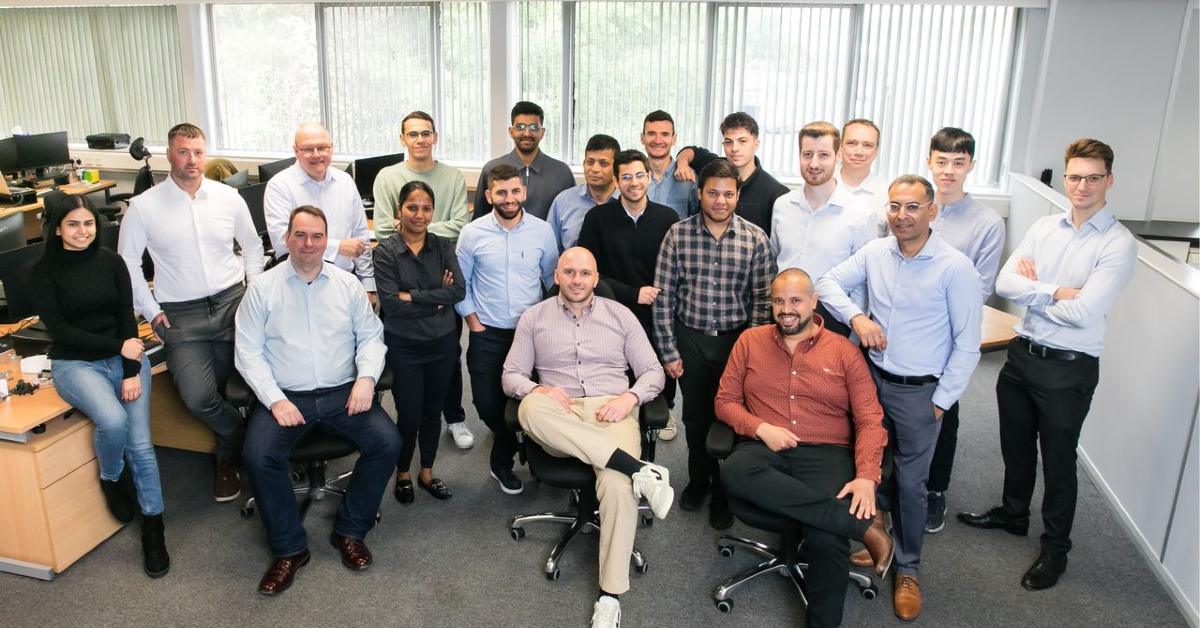UK-based Oxford Ionics, a startup on a mission to solve critical scalability issues facing the future of quantum computing, announced on Wednesday, August 30, that it has raised £2M (approximately €2.32M) in funding from the UK’s National Security Strategic Investment Fund (NSSIF).
The NSSIF is the UK Government’s venture arm for dual-use advanced technologies, operated jointly with the British Business Bank. It invests commercially in advanced tech companies, aiming to accelerate the adoption of national security and defense capabilities, while fostering the UK’s dual-use technology ecosystem.
The investment supports the development of Oxford Ionics’ trapped ion technology designed to tackle challenges in quantum computing.
Oxford Ionics also announced that it has appointed former Arm CTO Dipesh Patel as its non-executive director.
Dr Chris Ballance, co-founder & CEO of Oxford Ionics, says, “We’re delighted to welcome Dipesh to the Oxford Ionics board, and to receive backing from the UK’s NSSIF.”
“Quantum computing is a critical technology that will play a role in the security of the UK and we’re excited to continue to develop the infrastructure that will make quantum computing a reality,” adds Ballance.
Newly appointed non-executive director
Oxford Ionics says Patel’s extensive experience from his roles at Arm and his technical leadership background will play a crucial role in supporting it as it expands its technology.
This move underscores the company’s dedication to leveraging industry expertise to address quantum computing’s complexities.
Patel says, “It’s an honour to be appointed a non-executive director at Oxford Ionics. From my many years at Arm, I understand the challenges and opportunities for scaling highly technical, groundbreaking companies, taking them from the innovation stage to widespread adoption.”
“I’m looking forward to supporting Chris and Tom as they develop Oxford Ionics and to be a part of this exhilarating mission,” adds Patel.
Solving quantum computing’s difficult problems
Founded in 2019 by Dr. Chris Ballance and Dr. Tom Harty, Oxford Ionics designs and scales one of the ‘most’ promising quantum computing technologies – trapped-ions.
According to the company, trapped-ions have long been shown to be superior as many technologies compete for dominance to drive toward a quantum future.
Oxford Ionics utilises trapped ion processors featuring their patented Electronic Qubit Control (EQC) system to effectively manage qubits. By merging the strengths of individual atoms’ quantum capabilities with the reliability and scalability of silicon chip-based electronics, the company achieves outstanding quantum performance in their processors.
The company has made strides in solving scalability challenges in quantum computing, demonstrated through recent scientific publications. Their first paper presents their patented WISE architecture, addressing the problem of managing an excessive number of wires when scaling quantum chips. This architecture ensures practical control as chip power increases.
The second paper showcases an experimental prototype illustrating a foundational technique for this architecture.
A 30,000 square foot office
After a Series A funding round earlier this year, Oxford Ionics plans to increase its team size to 61 employees by the end of 2023. The expansion will mainly focus on bolstering their quantum science, chip design, and software engineering departments.
To accommodate this growth, the company has initiated the construction of a 30,000 square foot office and laboratory space.
This facility will house its Quantum Computing as a Service (QCaaS) platform, a cloud-based solution providing access to quantum computing hardware for addressing significant global challenges.
Additionally, the company will offer an on-premises option for clients needing exclusive access to the technology.










01
From telecom veteran to Dutch Startup Visa success: The Jignesh Dave story